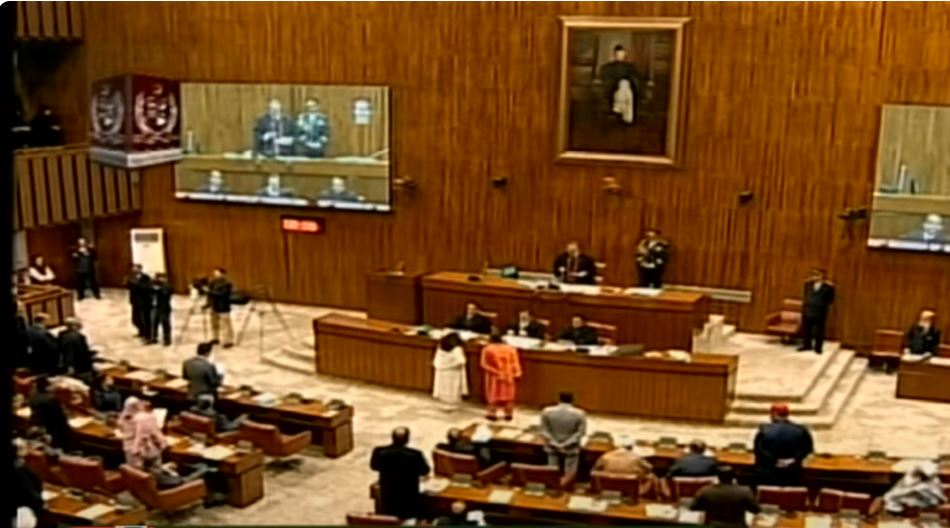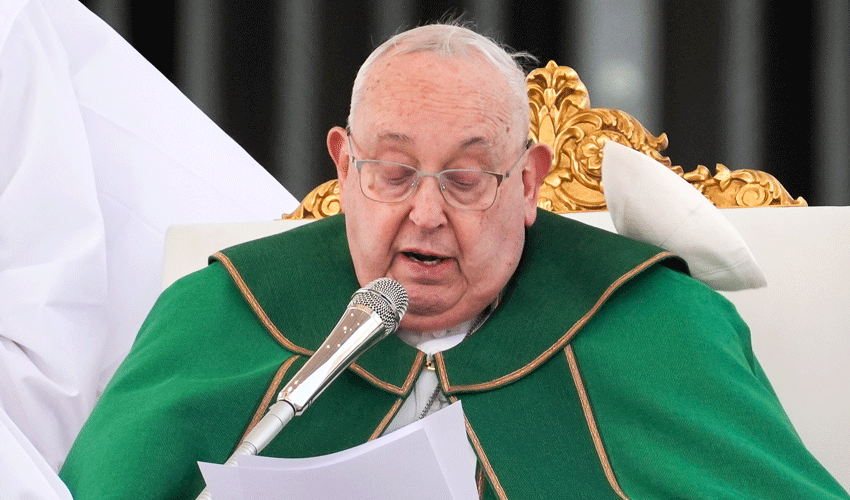Senate Standing Committee on Law and Justice has approved a proposal to increase the number of Supreme Court judges from the current count to 25, including one Chief Justice and 24 judges.
The committee members debated on the rational to increase judges’ number in the apex court as there treasury benches members advocated need for additional judges to manage the high case backlog in the Supreme Court.
Senator Hamid Khan and Senator Kamran Murtaza opposed the increase, with Senator Murtaza arguing that recent vacancies were strategic and that the Supreme Court should be consulted on the necessity of more judges.
Senator Hamid Khan raised concerns over financial constraints and suggested focusing on the efficiency of existing resources, particularly as Pakistan faces economic challenges.
On the other hand, Senator Shahadat Awan voiced strong support, noting that with an estimated 60,000 pending cases, at least 21 judges are essential.
Senator Abdul Qadir further argued that Pakistan’s growing population and rising crime rates necessitate a larger judiciary, pointing out that the current number of judges remains unchanged since 1995. He highlighted that vacancies persist in the provincial high courts as well.
The 26th constitutional amendment and international comparisons were also discussed, with committee members contrasting Pakistan’s judicial system with those of countries like England, Bangladesh, India, and Indonesia.
The committee approved the proposal, with the Chairman affirming that the increase aims to address Pakistan’s mounting legal caseload, though disagreements remain on its long-term implications.
Supreme Court Practice and Procedure Amendment Ordinance
The Senate has introduced the Supreme Court Practice and Procedure Amendment Ordinance 2024, which has been referred to the Standing Committee on Law and Justice.
The ordinance already in effect includes significant amendments aimed at enhancing judicial procedures.
A key provision adds a sub-clause to Section-II of the Practice and Procedure Act, mandating the inclusion of one senior judge and one judge nominated by the Chief Justice of Pakistan in relevant committees.
Moreover, the ordinance stipulates that public interest reasons must be provided before any hearings on matters, alongside provisions for prioritizing cases based on their filing order.
Additionally, the ordinance introduces sections 7A and 7B, ensuring that cases filed first are heard first and requiring documentation for all court cases and appeals.
In a related incident, during the Diwali celebrations, Chief Minister of Punjab, Maryam Nawaz, was hailed as a leader by minority member Dinesh Kumar, leading to a clash with Senator Humayun Mohmand, who suggested she sit on the government benches.
Dinesh Kumar expressed his allegiance to Maryam Nawaz, highlighting the growing political dynamics within the assembly.
Senator Talal Chaudhry also criticized Khyber Pakhtunkhwa Chief Minister Ali Amin Gandapur for welcoming arrested Khyber Pakhtunkhwa government employees with flowers, further intensifying the political atmosphere.
Additionally, a Senate Standing Committee meeting addressed a proposed bill to reuire a graduation qualification for assembly members. The bill's historical context was brought to light, with references to former President Pervez Musharraf's intentions to block Benazir Bhutto's path to Parliament. The discussion was postponed due to the absence of Senator Samina Mumtaz Zehri, leaving further deliberation on these critical issues pending.



























